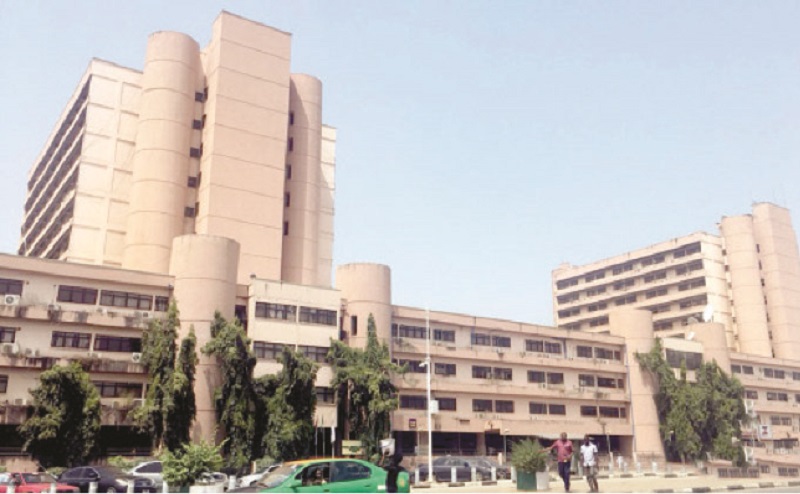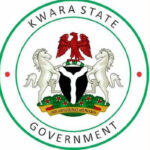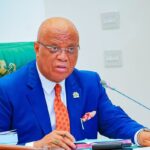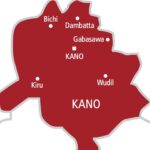Following what many described as a U-turn by President Bola Ahmed Tinubu on the Federal Ministry of Niger Delta Development, the number of ministers in his cabinet rose to 46.
However, findings revealed that not a few of the workers in some of the ministries were wrapped in a blanket of confusion following the splitting of some of the ministries.
Forty-five ministers had earlier taken their oath of office pursuant to Tinubu’s exercise of executive powers as granted under Section 5 of the 1999 Constitution, and in line with Section 147(3).
On July 27, Tinubu forwarded a list of 28 nominees to the Senate for screening and confirmation, and on August 2, the president sent the second batch of nominees for screening.
Tinubu: Leadership deficit held Nigeria back from manifesting destiny
You are not an Engineer, Tinubu’s aide replies Obasanjo on PH Refinery
All the nominees were cleared, apart from the trio of a former governor of Kaduna State, Mallam Nasir El-rufai, a former national women leader of the All Progressives Congress, Stella Okotete, and a ministerial nominee from Taraba State, Danladi Abubakar, over security clearance.
What immediately distinguishes the current cabinet of President Tinubu is that it is the largest since Nigeria’s return to civilian rule in 1999.
It would be recalled that former President Olusegun Obasanjo began in 1999 with a cabinet of 42 ministers (1999–2003), which he later reduced to 27, and was increased to 30 by the time he was leaving office in 2007.
His successor, the late President Umaru Musa Yar’Adua, in 2007 had a 39-member cabinet while his successor, Goodluck Jonathan, appointed 33 ministers (2011-2014), and later 37 just before the 2015 general elections.
On his part, the immediate past President Muhammadu Buhari appointed 36 ministers in 2015 but later increased to 42 in 2019.
New ministries and nomenclatures
While President Tinubu split some ministries and created new ones, he left not less than 15 of them without any changes in their appellations.
They include Defence, Education, Federal Capital Territory, Interior, Foreign Affairs, Police Affairs, Steel Development, Information and National Orientation, Justice; Environment (removed Ecological), Labour and Employment, as well as Special Duties and Intergovernmental Affairs.
Others are Power, Transportation, Industry, Trade and Investment, Science, Innovation and Technology, and Women’s Affairs.
However, Tinubu created new ministries, including Marine and Blue Economy; Tourism; and Ministry of State (Gas), Petroleum Resources. He also added responsibilities and appellations such as Health and Social Welfare; Communications, Innovation, and Digital Economy; Aviation and Aerospace Development; Humanitarian Affairs and Poverty Alleviation; Art, Culture and Creative Economy; Environment and Ecological Management; Water Resources and Sanitation; Agriculture and Food Security.
Confusion as new ministries share buildings, directors, staff
While the Ministry of Marine and Blue Economy, currently headed by Gboyega Oyetola, emerged from the Ministry of Transportation, the ‘parent’ ministry is currently headed by Said Alkali.
The two ministers were sworn in on Monday, August 21, with Oyetola resuming at the Ministry of Transportation immediately while Alkali resumed at the same ministry the following day.
“When some directors introduced themselves to the Minister of Marine and Blue Economy, they did not know whether they should introduce themselves as directors under the Ministry of Transport or Ministry of Marine and Blue Economy,” a senior official at the ministry told Daily Trust.
There was also confusion at the former Ministry of Information and Culture, from which the Ministry of Information and National Orientation, led by Muhammed Idris; the Ministry of Arts, Culture and Creative Economy, led by Hannatu Musawa; and the Ministry of Tourism, headed by Lola Ade-John, were created, as the three ministers came visiting at the same time and addressed journalists together.
It was also gathered that before the ministers were sworn in, civil servants in the ministries affected were still confused about the minister to report to.
Another senior official confirmed that the Minister of Solid Minerals, Dele Alake, and his Steel Development counterpart, Shuaibu Audu, would continue to work with the same set of civil servants until a full restructure and splitting of designated offices is carried out.
Confused workers speak
A visit to the federal secretariat complex and Office of the Head of the Civil Service of the Federation, where some of the ministers have offices, showed that there was actual confusion on the schedules of the workers.
A cross-section of the workers said they were waiting for directives from their directors who in turn were waiting for guidance from the permanent secretaries.
“It is not for us to determine where we want to work; it is for the government and our bosses to do that. This is not strange to us as we have had a merger of ministries or splits in the past.
“Ours is to do our duties and maintain our loyalty to the service,” an assistant director in one of the affected ministries said.
Another told our correspondent: “I think you (referring to the media, after clarification) are the ones making it look like confusion. Did you see us confused or complaining? You and your fellow media men and women should not bring confusion here,” the worker, a lady, said.
When told of the difficulty some directors were experiencing as to which of the ministers to report to, or where their offices would now be situated, she smiled and said, “This does not mean confusion; it would be sorted out. I see this as a way to better the governance in the country. I believe this will be sorted out.”

 Join Daily Trust WhatsApp Community For Quick Access To News and Happenings Around You.
Join Daily Trust WhatsApp Community For Quick Access To News and Happenings Around You.


